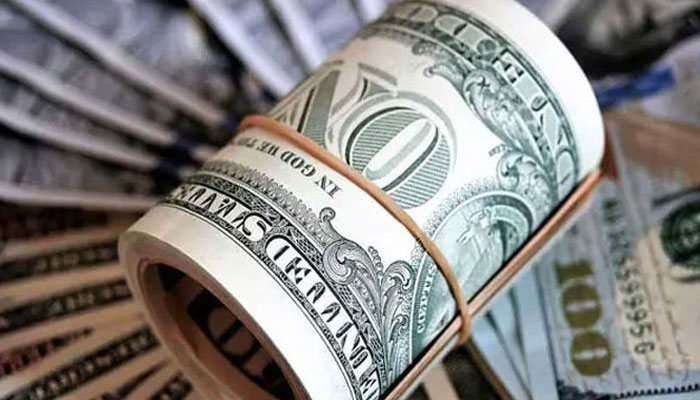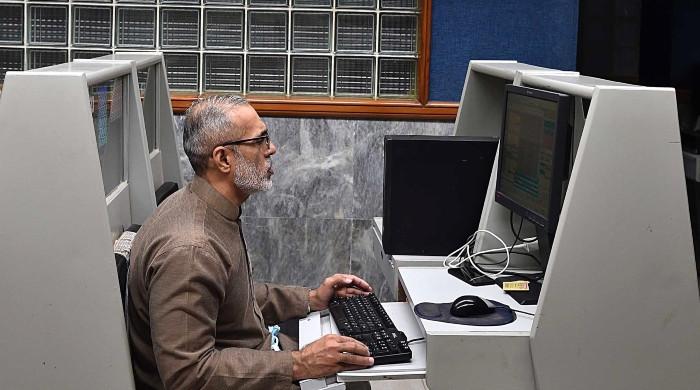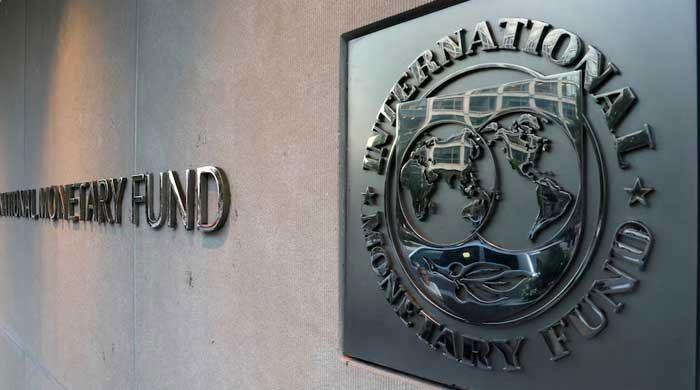The dollar is still king, even as coronavirus slams US
Against the euro, the dollar has risen by 3.5 percent since January 1
April 07, 2020

NEW YORK: The coronavirus outbreak in the United States has caused millions of people to lose their jobs and brought the economy to its knees but it has not dethroned the American dollar.
To the contrary, the currency has risen in value this year, gaining six percent from its lowest point reached in early March, according to the US dollar Index, which measure's the greenback's value against a basket of other currencies.
The dollar's rise is primarily due to its privileged position as the world´s reserve currency. That means that in times of crisis investors want to put their money are in safe havens, even if the US economy is in trouble as well.
Calling it "the exorbitant privilege of the dollar," Kit Juckes, global head of foreign exchange strategy at Societe Generale said, "Lots of people want dollars all the time."
Unlike other currencies, "you find that you can print a lot of dollars without the dollar necessarily weakening dramatically," he said.
That is the US Federal Reserve's move in recent weeks to pump multiple trillions of dollars in liquidity into the financial system have not weakened the value of the currency.
"The demand for safety in this climate is outpacing what the Fed has done," said Joe Manimbo of Western Union.
Another reason for the dollars appeal is the pressing need for cash by companies who have seen the crisis sap their revenues.
Reshuffle the cards
The currency is also the most traded in the world on the foreign exchange market, and the Fed announced last month that it would facilitate currency swaps with several other central banks so they could increase their dollar reserves.
Demand for greenbacks is particularly high in emerging markets saddled with dollar-denominated debt, Juckes said, but, "Not all of them can get themselves out of trouble easily."
Against the euro, the dollar has risen by 3.5 per cent since January 1.
And collapsing oil prices have helped the dollar appreciate against the Russian ruble, Canadian dollar and Norweigan krone, economies all deeply reliant on petroleum.
The US dollar was already highly valued thanks to the health of the economy — to the annoyance of President Donald Trump, since a strong currency also makes American exports more expensive against competitors.
Trump felt that made it more difficult for US firms compete with China as the two countries fought a trade war, and he relentlessly called on the Federal Reserve to cut the benchmark interest rate.
With the onset of the crisis and the shutdown of huge portions of the economy, the Fed last month cut the rate to zero.
Some observers believe the upheavals caused by the coronavirus could reshuffle the cards dealt to the world´s two largest economies and jepardize the dollar's position.
"The supremacy of the greenback will come into question in the weeks ahead," said BK Asset Management's Kathy Lien.
Investors have been betting that the global recession will be deeper than the US downturn, and that other countries won´t emerge as quickly as the US.
"While that may be true, we've seen data turn south for many countries weeks ago. In the US, we're only beginning to see the COVID-19 impact on national data and in some cases, the numbers are still dated," Lien said.
While a jobless report for March saw unemployment tick up to 4.4 percent, that data does not capture all of the jobs destroyed in the month.
Weekly data released showed an alarming 10 million people applied for unemployment benefits in the second half of March, as the pandemic slammed the US.











